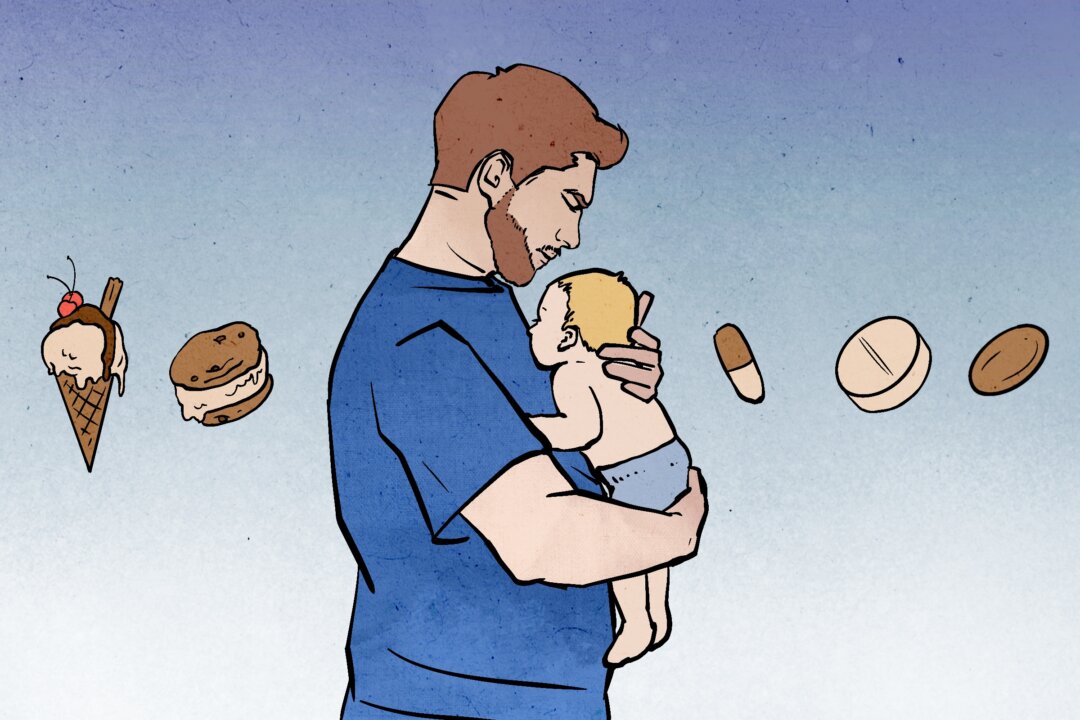In today’s world, food is readily available everywhere. But is this abundance a blessing or a curse? Let’s turn our attention to the beautiful Överkalix parish of northern Sweden, where overeating customs were traditionally passed down from grandfathers to fathers and then to their children. Conversely, if the paternal grandfather experienced an abundance of food during his slow growth phase, the risk of diabetes-related mortality in his grandchildren increased by more than fourfold.
This intriguing finding suggests that a nutrition-linked mechanism, particularly through the male line, plays a significant role in shaping the risk of certain diseases across generations. Over the past decades, there has been a surge of research on this topic, focusing on the impact of a father’s dietary habits on the health of his offspring. Scientists have discovered that a father-to-be’s diet can significantly influence the mental and physical health risks of his children.

However, the negative impact of a high-fat diet can be carried through a father’s sperm. When rats were fed a high-fat diet for 12 weeks, scientists observed that the pancreas of their female offspring contained fewer insulin-producing cells compared to the offspring of rats fed a normal-fat diet. (The Epoch Times) As adults, daughter mice had an increased likelihood of glucose intolerance, a preclinical condition of diabetes, with a decline in blood insulin levels.
They found that the fatty diet of father mice did not affect their offspring’s body weight but caused about 30 percent of male offspring to develop glucose intolerance. It turns out that a father’s diet alters a specific type of genetic material in the sperm’s mitochondria. These altered molecules, known as transfer RNAs, act like messengers, changing how a child’s genes function without altering the DNA sequence.
These offspring also showed increased gene activity related to fat and cholesterol production in their livers. Scientists observed that when mice were fed a low-protein diet, their grandchildren, both male and female, exhibited higher body weight during the first three weeks after birth compared to the offspring of mice fed a normal-protein diet. (The Epoch Times) Scientists observed that when mice were fed a low-protein diet, their grandchildren, both male and female, exhibited elevated expression of disease markers, such as higher activities of serum and kidney ACE, compared to the offspring of mice fed a normal-protein diet.
(The Epoch Times) Omega-3 fatty acids Vitamin E Vitamin C β-carotene Selenium Zinc Cryptoxanthin Lycopene Vitamin D Folate As scientific research progresses, it’s becoming clear that a father’s dietary journey doesn’t end with him—it transcends time and space, leaving a lasting impact on the well-being of future generations. The effects of an unhealthy diet can accumulate transgenerationally, potentially contributing to the increasing prevalence of chronic diseases today. The saying “You only live once” (YOLO) suggests indulging in pleasures despite risks, assuming our actions end with us.
However, this isn’t entirely true. Our choices, particularly dietary ones, can affect our children and future generations. In an era where ultra-processed food is rampant and eating can become an addiction, switching to a whole-food, balanced diet can be challenging.
But remember, we are not just eating for ourselves, but sowing the seeds of health for future generations..



















